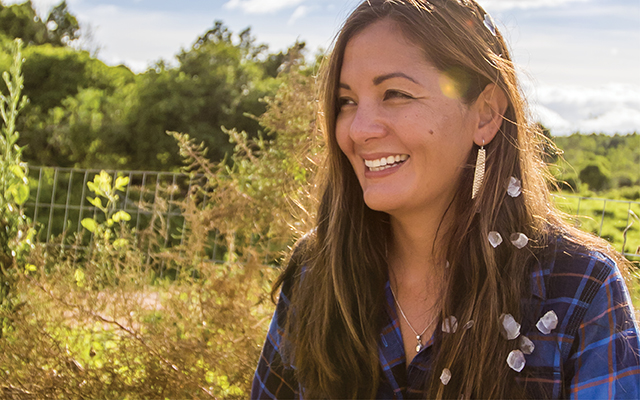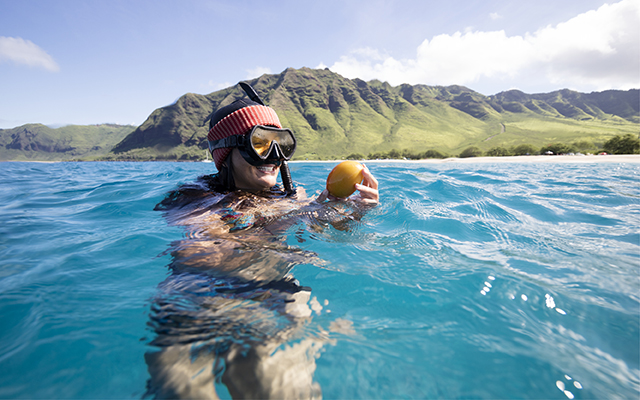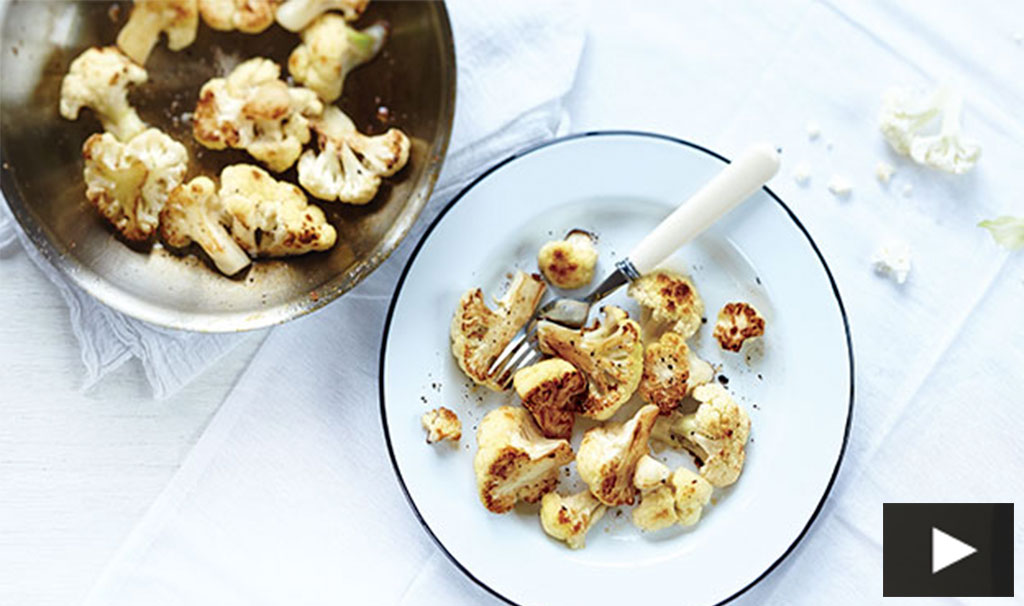Raised off the grid in Hawaii, Kimi Werner knows that “free range” and “wild caught” are not simply terms on a food label; they’re messages integral to how she lives her life and navigates her passions for cooking, painting, fishing, and diving.
“The earlier parts of my childhood will probably always be the most precious memories that I have,” the environmentalist recalls. “I played in the river that ran near the back of our home, gathered chicken eggs each morning, hung out among the plants and animals, and went snorkeling with my dad.”
By standard economic measures, her family would have been considered poor, but “those things made me feel incredibly rich.”
After Werner completed first grade, her dad launched his own business and the family moved to a sub-division where the ocean was replaced by paved roads and the eggs came from a grocery store.
Where they got their food changed, but it didn’t deter the budding chef. “By 7 years old I had permission to use the stove and a knife and cook for myself or my family,” she remembers.
Those early years sparked Werner’s passion for cooking and led her to train as a chef after high school. “I got to see the magic of food coming straight from the source,” she explains. “Understanding that connection is a fascinating and inspiring discovery if you open your heart to it.”
Werner earned a culinary-arts degree, but after working in restaurant kitchens she began to lose interest in the profession. “Every recipe was standardized, the ingredients arrived from faraway places broken down into parts. I wasn’t able to experiment anymore,” she says.
Handing off plates to servers meant that she lost something else she loved: seeing people appreciate the dishes she prepared. “It was then that I realized that what was important to me was understanding and honoring the story of where food comes from as well as sharing it with people.”
Diving Deep
Werner continued cooking to pay the bills but began pondering her life’s purpose. Memories of diving and fishing with her dad kept arising.
One day at a barbecue, a couple of guys brought fish they’d caught to grill. Werner realized she needed to find a way to reconnect to the story of her food — and her roots.
“I started asking any stranger I’d see with a spear if they’d teach me to fish,” she recalls. Eventually she met two elite Hawaii spearfishers — Kalei Fernandez and Wayde Hayashi — who taught her how to safely dive deeper than 100 feet while holding her breath.
Werner spent the next three years studying fish behavior, body language, habits, and habitat while perfecting her diving and fishing methods. Then, in 2008, she decided to put her skills to the test by competing in the U.S. National Spearfishing Championships in Newport, R.I. “I wanted to honor my mentors for all they taught me about the ancient method and to measure myself against the best,” she says.
Despite some challenges acclimating to a new oceanic environment during her pre-competition practice dives, Werner was confident on the day of the competition. “It felt like a moment I had prepared for my whole life.”
She climbed into her kayak and paddled past her male competitors, arriving at her fishing spot first. After six hours of diving and fishing, Werner returned to shore and was crowned national champion. At the end of the season, she claimed the World Underwater Federation’s rookie-of-the-year award.
Despite winning more titles during the next two years, she never again experienced the joy she felt that day. “It became as unrewarding as filling those kitchen orders,” she recalls. “I was always defending or proving something instead of being full of curiosity or gratitude.”
She left the competitive circuit in 2010, a move that triggered a wave of criticism — both professional and personal. “I lost diving partners and sponsors and let down fans and those who wanted to see me keep winning,” she explains. “I felt like I let myself down, too, but I just couldn’t do it anymore.”
Remembering the Love
It took about a year for Werner to regroup. “Even when I would dive for fun, I’d hear all that negativity in my head,” she recalls. “Which left me unable to focus on what I needed to for success in diving and fishing.”
One day, after a frustrating spearfishing outing with friends, she packed up and turned her kayak around. Before paddling to shore, though, she decided she’d try one last drop.
Leaving her gear behind, she headed toward the ocean floor, about 100 feet down. There, she crossed her arms over her head, put her face down, and let every single voice of negativity come and go.
“After all the voices left, all I heard was the sound of the ocean and whales singing,” she says. “And I looked up and saw the sun flickering on the surface of the water, which was always my favorite part of diving.”
Werner suddenly remembered how the river, trees, and reefs once felt like her childhood playmates. “I felt like the ocean was hugging me and that I wasn’t alone anymore because the sun and sea still loved me and I loved them back,” she recalled.
“Having that feeling of appreciation for being there, for the sights I was seeing and the sensations I was feeling, helped me realize that if I just strive to honor and serve for the rest of my life, then I’ll be happy no matter what I decide to do.”
These days, the 37-year-old Werner still dives and spears her food. “The challenges and lessons of spearfishing keep me honest,” she admits. “Even after I leave the water I’m more conscious about what I choose to buy and what I do with my time.”
Back on land, she puts artistic talents developed during her college years to use by painting, and she sells her work to raise money for ocean–stewardship efforts. She also works with organizations to merge responsible hunting and fishing with conservation, a combination she believes is key to healthy oceans.
Werner is a popular speaker (her TED Talk extolls the values of slowing down — even when encountering a great white shark!) — and serves as a brand ambassador for Patagonia and Yeti. “I’ve connected with more fans and sponsors since giving up a competitive fishing career,” she says. “It turns out more people relate to fish as food than as trophies.”




This Post Has 0 Comments